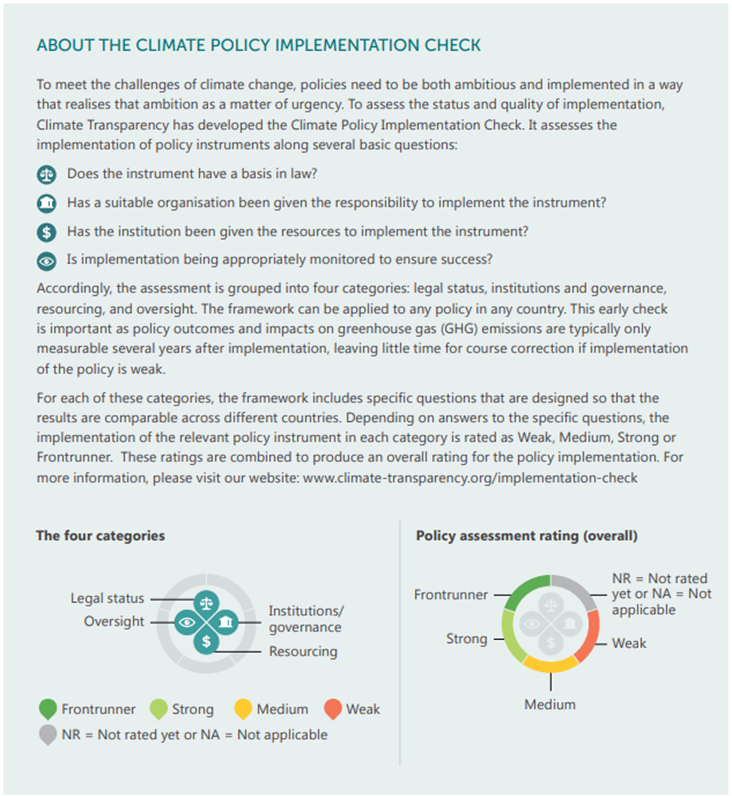
Immediate and deep emissions reductions across all sectors are needed to keep the goals of the Paris Agreement within reach. Many countries have increased their ambition to reduce emissions in their NDCs. Still, collectively the ambition is still not high enough to stay below 1.5°C.
To meet the challenges of climate change, policies need to be both ambitious and implemented in a way that realises that ambition as a matter of urgency. To assess the status and quality of implementation, Climate Transparency has developed the Climate Policy Implementation Check. It assesses the implementation of policy instruments along several basic questions.
- Does the instrument have a basis in law?
- Has a suitable organisation been given the responsibility to implement the instrument?
- Has the institution been given the resources to implement the instrument?
- Is implementation being appropriately monitored to ensure success?
Accordingly, the assessment is grouped into 4 categories: Legal status, Institutions & governance, Resourcing, and Oversight. The framework can be applied on any policy in any country.
If you are interested to know more, please contact the international secretariat of Climate Transparency: Florian Mersmann (fmersmann@governance-platform.org).
Ambitious targets are not sufficient on their own—policies need to be implemented to meet those targets. In this paper, we set out a concise framework to check from an early stage whether policies are being implemented with a view towards achieving a country’s NDC. This early check is important as policy outcomes and impacts on greenhouse gas emissions are typically only measurable several years after implementation, leaving little time for course correction if implementation of the policy is weak.
This climate policy implementation check is an additional tool that enables stakeholders to evaluate the implementation status of policies and hold governments to account. These independent assessments are especially valuable in the run-up to the Global Stocktake, given that formal processes under the UNFCCC are not set up to fulfil this remit.













